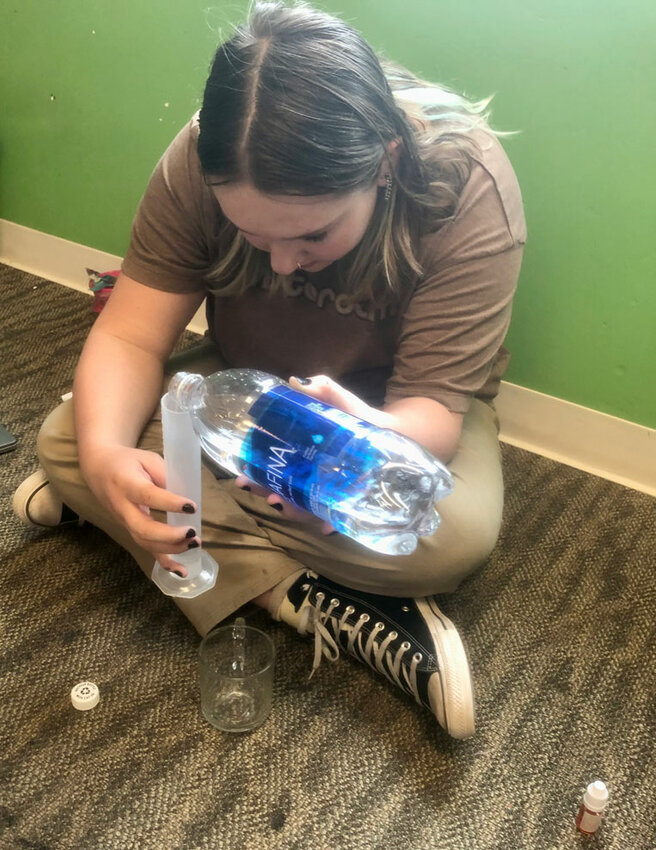
Pagosa Peak Open School middle schooler Annie compares the pH of vinegar to bottled water during her water project.
By Emily Murphy | Pagosa Peak Open School
This year’s Pagosa Peak Open School middle schoolers have spent the year on their science projects, considering environmental problems, creating inquiry questions and designing solutions.
“In this way, student interests are motivating the learning,” lead middle school advisor Joey Wychesit said. “When students have choice within guidelines, the learning becomes active, applicable and real for them.”
After a study of desertification, water as a precious resource and the impacts humans have on water quality, students got to work. With background knowledge support through research, field work and experts, they proposed their topics and began designing in small groups. Groups are working with questions around water safety and health, flooding and drought effects on crops and ranches, water power and filtration. Students have designed their own experiments, including things like testing the pH of bottled water, and creating filters and water wheels.
“The pH of this bottled water is the same as vinegar,” eighth-grader Annie said.
“That begs a question, doesn’t it?” Wychesit asked.
Students will present their findings during the PPOS school-wide showcase at the end of the school year, where all students will share the learning through project presentations.
“ is not an easy teaching style because there isn’t a clear-cut solution matrix,” Wychesit said. “It involves problem solving for students and teachers, which I enjoy. It also gives me a chance to embrace failure as a way to engage students in critical thinking, problem solving and creativity. In real life, you have access to a computer and a calculator. You can find the ‘what.’ When you are a PBL student, the work they do is behind the ‘why’ and the ‘how,’ preparing you for those real-world skills you need later in life.”